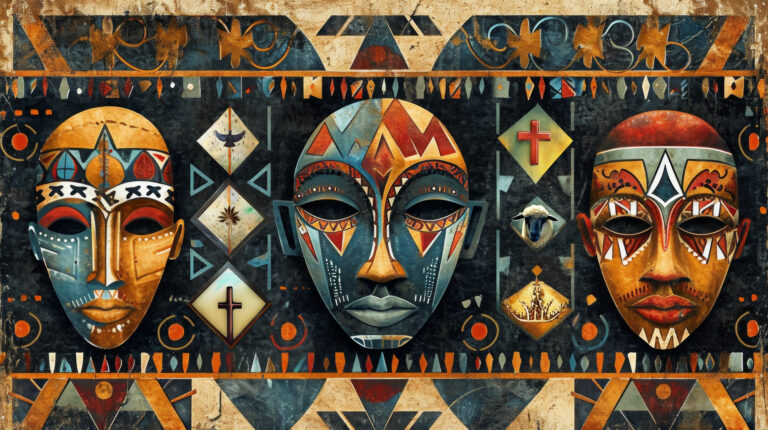Without a doubt, religious and cultural traditions are significant enablers of child marriages in Africa. Other socio-economic factors related to those include poverty and gender discrimination. While bride price is a big part of the cultural requirements for marriage in many parts of Zambia, and throughout Africa, the commercialisation of lobola has led to the commodification of many young girls, even children. Again, religious and traditional values might be offered as justification for child marriage. But in many cases of significant poverty girls are essentially sold for lobola, to bring an income.
I’ve heard and seen almost nothing from the Zambian church to address this widespread practice.
As a Zambian, living in what is a constitutionally Christian country or nation, it troubles me that the protection of very young women and girls from the evils of child marriage isn’t a priority. Furthermore, I’ve heard and seen almost nothing from the Zambian church to address this widespread practice. Further still, many NGOs highlight child marriages in rural communities when appealing for funding from Western donors, however their impact is by-and-large restricted to urban areas.
We cannot stick our heads into the sand. Young girls, children, are suffering. They’re being denied an education, stripped of countless opportunities as well as choices, and ultimately raped. The church needs to speak up, even partnering with traditional chieftains to protect our children. It’s not enough for African theologians to get their doctrine right, if they aren’t willing to follow God’s directives therein to address socioeconomic abuses and evil practices.
You can’t address something you can’t name. You can’t find a solution to something that isn’t defined. Therefore, unveiling the shadows of child marriage language is key.
It’s Time to Unveil the Shadows of Child Marriage
I felt prompted to write this article after coming across various police reports that failed to address obvious cases of child marriage.
For example, a recent police report reads: “A woman in Nakonde District has been arrested for beating her husband to death with a stick over his alleged infidelity. The 19-year-old suspect, Astridah Namukonda, had accused her 26-year-old husband, Cracious Sinkala, of having an affair with another woman.” This incident occurred on the 30th September, 2023, in Ifina. But there was a glaring problem that went unexamined. What was that? Well, Astridah and Cracious had been married since 2019. This means that she was, at the very oldest, 16 when she married; but was more likely 15. He, on the other hand, was 22.
Yet, for all the quite obvious evidence to the fact, the language of child marriage was entirely absent from the report.
This example, together with many others, beg two moral and/or ethical questions for Zambians:
- What is the legal age of consent for sex?
- What is the legal age of marriage in Zambia?
Until the statutory and customary laws speak one language, our young people will suffer.
Zambia’s constitutional law is clear on both. The age of consent for sexual intercourse is 16; and the legal age for marriage is 21. However, there is an exception to these laws within customary law. This exception renders the nation’s laws completely ineffective.
We must preach zero tolerance regarding violence in marriages. However, it is important to give context to why young women get to the point of killing their husbands. Early childhood marriages deprive girls of their childhood and the opportunity to mature, this in the long run can impact their mental health. With little knowledge of family planning young mothers end up with too many children and they are expected to cope without professional help if they are struggling.
In a culture where postnatal depression is too often described as suffering from bad moods or worse, demons, young mothers often have breakdowns which can lead to violence towards husbands or children. Until the statutory and customary laws speak one language, child marriages will continue and our young people will suffer.
Three of the Most Common Types of Child Marriage
We need to combat the idea that the African girl exists for men and marriage.
Unsurprisingly, the casualties of child marriages are mostly girls. Statistics suggest that among 15 to 19 year olds, as many as 16% of girls are married compared to 1% of boys. Among 20 to 24 year olds who are already married, as many as 31% of the females were married before 18, compared with only 2% of males. Below are the three most common types of underage marriage that contribute to these statistics.
1. Child-to-Child
This is when two children who have no business getting into the adult world of marriage decide in their naïve childhood innocence to get married, with the permission from their respective parents or guardians. Usually, girls would be about 11 and boys around 14 years old in this arrangement.
2. Adult-to-Child
In more urban settings the adult might be called a sugar daddy or blesser. This is an intergenerational marriage, where the man is far older than the girl. Of course, there are many examples of this that doesn’t involve legal minors in marriage or sex. However, there are also upsetting examples of girls as young as 13 being married off to men over 30.
3. Cover-Ups
Finally, this usually happens when a girl child gets pregnant. In our culture of keeping virginity for marriage, where the girl children are honoured or shamed, the pregnant minor is typically forced to marry the adult responsible for her pregnancy. This doesn’t so much solve a problem as create a whole host of new ones.
Approaching the Problem and Assisting Young Women
Until we identify and name child marriages as a growing problem in our communities, we won’t seek out a solution. Our goal isn’t to reduce child marriages but to end the practice entirely; to eradicate it completely. So empowering our communities with information is important. Then we must support and make use of the justice system. For a crime to be addressed it must first be reported.
Our goal isn’t to reduce child marriages but to end the practice entirely.
It’s my conviction that the church should be central to this task. Most of our communities in both urban and rural Zambia belong to local churches. It’s the responsibility of the leaders in those countless churches to courageously address social ills, encouraging our faith-based communities to tackle evil head-on. In our churches we should also offer wisdom and support to the parents of girls, showing them that marriage isn’t the only option. Finally, marriage conversations should never begin before it’s appropriate. Adult males, whether joking or hinting, need to stop calling 5-year-olds “my wife” and the mother “my in-law.”
On various fronts, we need to combat the idea that the African girl exists for men (her husband) and marriage. Women, there’s more to life than being a Makoti. Men, parents, churches, and state, let’s protect our young girls.










